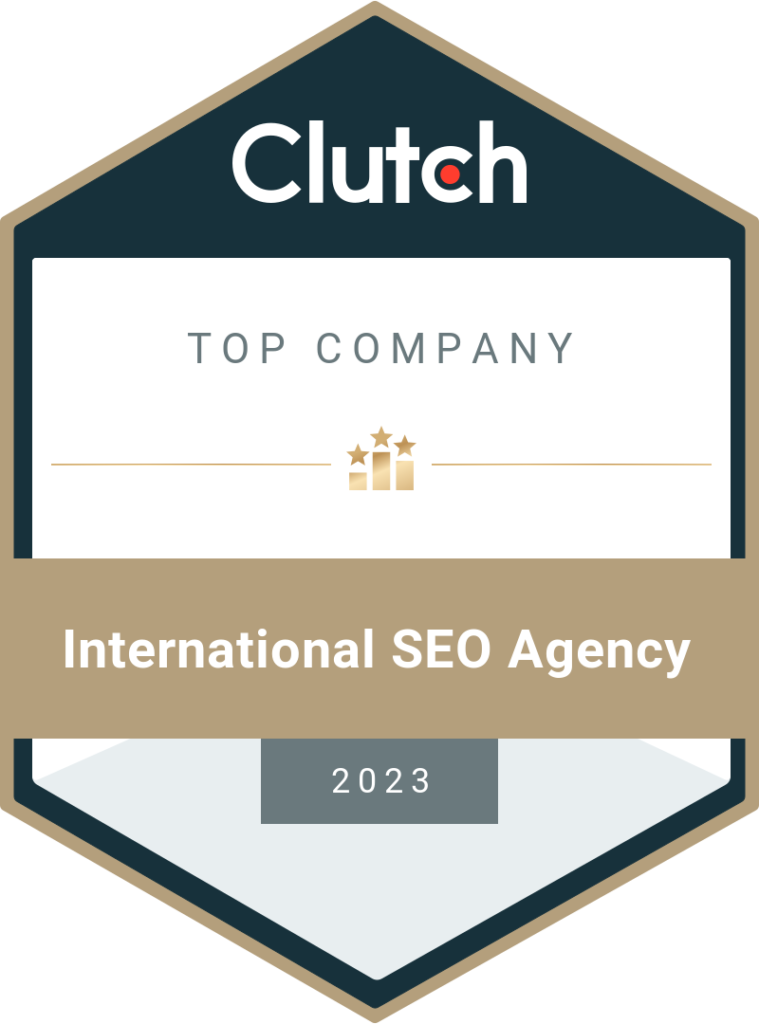In this comprehensive blog series, we will delve into the world of Facebook Ads for real estate, unveiling the strategies, tips, and best practices that can elevate your business to new heights. From creating compelling ad campaigns to refining targeting parameters, we will explore the key elements that contribute to a successful Facebook advertising strategy. Get ready to harness the power of this social media giant and unlock unparalleled opportunities for your real estate business.
Table of Contents
Why Facebook Ads are Important for Real Estate Property Businesses
Facebook Ads have become an indispensable tool for property businesses, revolutionizing the way they reach and engage with their target audience.
Here are some key reasons why Facebook Ads are crucial for the success of real estate property businesses:
- Unparalleled Reach: With over 2.85 billion monthly active users, Facebook provides an unparalleled reach to property businesses. This vast user base allows real estate professionals to showcase their listings and services to a wide audience, maximizing their visibility and increasing the chances of attracting potential buyers and sellers.
- Precise Targeting: Facebook’s advanced targeting capabilities enable property businesses to reach their ideal audience with precision. Advertisers can create custom audiences based on demographics, interests, behaviors, and even specific locations. This level of granularity ensures that your ads are seen by individuals who are most likely to be interested in your properties, leading to higher conversion rates and a more cost-effective marketing strategy.
- Enhanced Engagement: Facebook is known for its highly engaging platform, where users actively interact with content through likes, comments, and shares. By leveraging Facebook Ads, property businesses can tap into this engagement and create compelling ad campaigns that captivate their target audience. Engaging content not only generates brand awareness but also encourages users to take desired actions, such as visiting a property website, requesting more information, or scheduling viewings.
- Rich Ad Formats: Facebook offers a variety of ad formats tailored to suit the needs of property businesses. From eye-catching image ads and engaging video ads to immersive carousel ads showcasing multiple listings, there are numerous options to showcase properties in a visually appealing and compelling manner. These formats enable real estate professionals to highlight the unique features and selling points of their properties, making a lasting impression on potential buyers.
- Cost-Effective Advertising: Compared to traditional marketing channels, Facebook Ads offer a cost-effective advertising solution for property businesses. Advertisers have control over their budget, allowing them to allocate funds based on their specific goals. With careful targeting and optimization, property businesses can achieve high returns on investment by reaching the right audience at the right time, without wasting resources on uninterested viewers.
- Valuable Analytics: Facebook’s robust analytics and reporting tools provide property businesses with valuable insights into their ad performance. Advertisers can track key metrics such as reach, impressions, clicks, and conversions, allowing them to measure the effectiveness of their campaigns and make data-driven decisions. This data helps optimize future ad campaigns, refine targeting parameters, and maximize the overall success of real estate marketing efforts.
Facebook Ads offer property businesses an unparalleled opportunity to connect with their target audience, generate leads, and boost brand awareness. By harnessing the power of Facebook’s vast reach, precise targeting, engaging ad formats, and valuable analytics, real estate professionals can stay ahead of the competition and achieve remarkable results in the digital age.
Facebook Ads are essential for property businesses due to several more key reasons
- Massive Reach: Facebook is the largest social media platform with over 2.8 billion monthly active users. This vast user base provides property businesses with a massive audience to target and reach potential buyers. Facebook Ads allow you to tap into this extensive network and expose your property listings to a wide range of users.
- Targeted Advertising: Facebook offers robust targeting options that enable property businesses to reach specific audiences based on demographics, interests, behaviors, and even life events. You can precisely target individuals who match your ideal buyer persona, ensuring that your ads are seen by the right people who are more likely to be interested in your properties.
- Cost-Effective Advertising: Facebook Ads provide cost-effective advertising solutions compared to traditional marketing channels. You have control over your budget and can set daily or lifetime spending limits. Additionally, Facebook’s advanced targeting capabilities allow you to optimize your ad spend by reaching the most relevant and interested users, maximizing the return on investment (ROI) for your advertising efforts.
- Diverse Ad Formats: Facebook offers a variety of ad formats, including images, videos, carousels, and lead ads, allowing you to showcase your properties in engaging and immersive ways. These formats enable you to highlight the unique features, amenities, and visual appeal of your listings, capturing the attention of potential buyers and enticing them to take action.
- Retargeting Capabilities: Facebook Ads provide retargeting capabilities, allowing you to re-engage with users who have previously shown interest in your properties. By placing Facebook Pixel on your website, you can create custom audiences and serve tailored ads to individuals who have visited your website or taken specific actions, increasing the chances of converting them into leads or buyers.
- Tracking and Analytics: Facebook Ads Manager provides comprehensive tracking and analytics tools to monitor the performance of your campaigns. You can measure key metrics such as impressions, clicks, conversions, and engagement rates, gaining valuable insights into the effectiveness of your ads. This data allows you to optimize your campaigns, make data-driven decisions, and continuously improve your advertising strategies.
- Mobile-Friendly Advertising: Facebook is predominantly accessed through mobile devices, and its ad platform is designed to cater to mobile users. With the majority of users browsing properties and engaging with content on their smartphones, Facebook Ads provide an ideal platform to showcase your listings in a mobile-friendly format, ensuring that you reach potential buyers wherever they are.
In summary, Facebook Ads offer property businesses unparalleled reach, targeting capabilities, cost-effectiveness, and diverse ad formats. By leveraging these features, property businesses can effectively promote their listings, increase brand visibility, generate leads, and ultimately drive more conversions.
Targeting
How to Target the right audience on Facebook for Your Real Estate Facebook Ads

Understanding your audience is a crucial step in creating effective Facebook Ads for your real estate business. By having a deep understanding of your target audience, you can tailor your ad campaigns to resonate with their needs, preferences, and behaviors.
Here are some key considerations to help you understand your audience for real estate Facebook Ads:
- Demographics: Start by identifying the demographic characteristics of your ideal audience. Consider factors such as age, gender, location, income level, and occupation. Understanding these demographics will help you create targeted ads that appeal to the specific segment of the population you are trying to reach.
- Interests and Hobbies: Explore the interests, hobbies, and activities that are relevant to your target audience. Do they have specific hobbies like golfing or hiking? Are they interested in home improvement or interior design? Knowing their interests will allow you to craft ads that resonate with their passions and lifestyle.
- Life Events: Consider significant life events that may impact your audience’s real estate needs. Are they newlyweds looking for their first home? Are they empty nesters downsizing? Understanding their life stage and the events they may be going through will help you create ads that address their unique circumstances and motivations.
- Behavioral Patterns: Analyze the online behaviors and patterns of your audience. Look at their past real estate searches, websites they visit, and online communities they engage with. This information can give you insights into their preferences, intentions, and likelihood of engaging with your ads.
- Pain Points and Motivations: Identify the pain points and motivations of your audience when it comes to real estate. What challenges are they facing? Are they looking for a larger home, investment opportunities, or a specific location? Understanding their motivations and pain points will allow you to craft compelling ad messaging that addresses their specific needs and desires.
- Existing Customer Data: Utilize the data you have from your existing customers or leads. Look for commonalities and patterns among your successful transactions. This data can provide valuable insights into the characteristics and preferences of your target audience.
- Continuous Testing and Refinement: Once you have identified your initial audience, it’s important to continuously test and refine your targeting parameters. Facebook provides powerful tools to analyze the performance of your ads and make adjustments accordingly. Monitor the metrics and feedback from your campaigns, and use the data to optimize your targeting for better results.
Remember, audience understanding is an ongoing process. As you run more ad campaigns and gather more data, you can further refine your audience targeting and create more impactful Facebook Ads for your real estate business.
Real Estate Facebook Ad Formats
The different types of Facebook Ads for Real Estate Property Businesses
Facebook offers a variety of ad formats that can effectively showcase real estate properties and attract potential buyers.
Here are some of the different types of Facebook Ads that property businesses can utilize:
- Image Ads: Image ads are the most common and straightforward format. They consist of a single static image and accompanying text. Property businesses can use high-quality visuals of their properties to capture attention and generate interest. It’s important to choose captivating images that highlight the key features and unique selling points of the property.
- Video Ads: Video ads are highly engaging and can provide a more immersive experience for viewers. Property businesses can create short videos that showcase the interior and exterior of properties, giving potential buyers a virtual tour. Videos can also feature testimonials from satisfied clients or highlight the amenities and neighborhood surrounding the property.
- Carousel Ads: Carousel ads allow property businesses to display multiple images or videos in a swipeable format. Each card within the carousel can showcase a different property or highlight various rooms and features within a single property. This format is effective in presenting a range of options to potential buyers and increasing their engagement.
- Slideshow Ads: Slideshow ads are a dynamic alternative to videos. They consist of a series of images or short clips that play in a loop, creating a visually appealing presentation. Property businesses can use slideshows to showcase different angles and aspects of a property, providing viewers with a comprehensive view.
- Collection Ads: Collection ads are ideal for showcasing multiple properties or a series of related listings. This format combines an engaging cover image or video with smaller product images below. When users tap on the ad, they are taken to an immersive instant experience where they can browse through the different properties or listings.
- Lead Ads: Lead ads are designed to capture user information, making them useful for generating leads. Property businesses can create lead forms that allow potential buyers to submit their contact details in exchange for more information about a property or to schedule a viewing. This format simplifies the lead generation process and can help expand your client database.
- Dynamic Ads: Dynamic ads are a powerful option for property businesses with a large inventory of listings. These ads automatically populate with properties that are tailored to each viewer based on their browsing behavior and preferences. Dynamic ads can be highly personalized, increasing the likelihood of capturing the attention of potential buyers.
By utilizing a combination of these different Facebook ad formats, property businesses can effectively showcase their listings, engage with potential buyers, and generate leads. It’s important to select the formats that best align with your marketing objectives and tailor them to highlight the unique features and value propositions of your properties.
Budgeting
How to set a budget for your Real Estate Facebook Ads campaign

Setting a budget for your real estate Facebook Ads campaign requires careful consideration of your marketing goals, audience size, and available resources.
Here are some steps to help you set a budget for your campaign:
- Define Your Objectives: Start by clearly defining your campaign objectives. Are you aiming to generate leads, increase brand awareness, drive website traffic, or promote specific listings? Knowing your objectives will guide your budget allocation and help you measure the success of your campaign.
- Determine Lifetime Value (LTV): Calculate the potential lifetime value of a customer or the revenue you can generate from a successful real estate transaction. This will give you an idea of how much you can afford to invest in acquiring a lead or converting a potential buyer.
- Consider the Audience Size: Evaluate the size of your target audience. Facebook Ads Manager provides estimates of the potential reach based on your targeting parameters. If your audience size is small, you may need a higher budget to ensure sufficient ad impressions and engagement.
- Assess Competition: Research your competition and understand their advertising activities on Facebook. If you’re operating in a highly competitive market, you may need to allocate a larger budget to stay visible and maintain a competitive edge.
- Test and Optimize: Start with a smaller budget initially and run test campaigns to gauge the performance of your ads. Monitor key metrics such as click-through rates, conversion rates, and cost per lead. Based on the initial results, optimize your targeting, ad creative, and landing pages. Once you have identified winning strategies, you can confidently allocate a larger budget to scale up your campaigns.
- Consider the Ad Format and Placement: Different ad formats and placements may have varying costs. For example, video ads tend to have higher production costs but can yield better engagement. Consider the cost implications of the ad formats you choose and allocate budget accordingly.
- Monitor and Adjust: Continuously monitor the performance of your Facebook Ads campaign. Assess the return on investment (ROI) and make adjustments as needed. If a particular ad set or targeting segment is performing exceptionally well, consider reallocating more budget to capitalize on its success.
- Set a Daily or Lifetime Budget: Facebook Ads Manager allows you to set either a daily budget (the amount you’re willing to spend per day) or a lifetime budget (the total amount you’re willing to spend over the course of the campaign). Choose the option that aligns with your overall budgeting strategy and marketing goals.
Remember that setting a budget is not a one-time decision. It’s an ongoing process that requires monitoring, analysis, and adjustment based on the performance of your campaigns. Stay flexible and be prepared to make changes to optimize your budget allocation for maximum results.
Measuring Success
How to measure the success of your Real Estate Facebook Ads Marketing Campaign

Measuring the success of your real estate Facebook Ads campaign is crucial for understanding its effectiveness and making data-driven decisions to optimize your marketing efforts.
Here are some key metrics and steps to help you measure the success of your campaign:
- Define Key Performance Indicators (KPIs): Start by identifying the specific KPIs that align with your campaign objectives. Common KPIs for real estate Facebook Ads campaigns include:
- Click-through Rate (CTR): The percentage of people who clicked on your ad compared to the total number of impressions. It measures the effectiveness of your ad in generating interest and driving traffic.
- Conversion Rate: The percentage of users who completed a desired action, such as submitting a lead form or scheduling a viewing. It indicates how well your ads are driving actual conversions.
- Cost per Conversion: The average amount spent on acquiring a lead or generating a conversion. It helps assess the cost-effectiveness of your campaign.
- Return on Ad Spend (ROAS): The revenue generated compared to the amount spent on advertising. It provides insights into the profitability of your campaign.
- Engagement Metrics: Likes, comments, shares, and video views indicate the level of engagement and interest generated by your ads.
- Utilize Facebook Ads Manager: Facebook Ads Manager provides a comprehensive dashboard with various reporting metrics to assess the performance of your campaigns. It allows you to track impressions, clicks, conversions, costs, and other relevant data.
- Compare Against Benchmarks: Establish benchmarks for your KPIs based on industry standards or past campaign performance. Comparing your metrics against these benchmarks can help you gauge the effectiveness of your campaign.
- Set Up Conversion Tracking: Implement Facebook Pixel or other conversion tracking tools to track the actions users take after clicking on your ads. This allows you to measure the impact of your ads on lead generation and conversions.
- A/B Testing: Conduct A/B testing by creating multiple variations of your ads and testing them against each other. Compare the performance of different ad creatives, headlines, calls to action, or audience targeting to identify the most effective elements.
- Attribution Modeling: Consider the customer journey and attribution models when analyzing the impact of your ads. Evaluate the role of different touchpoints, such as ad impressions, clicks, and conversions, to understand how they contribute to the overall success of your campaign.
- Analyze Return on Investment (ROI): Calculate the ROI by comparing the revenue generated from your real estate transactions to the cost of your Facebook Ads campaign. This provides a clear understanding of the profitability and value derived from your advertising efforts.
- Periodic Reporting and Analysis: Regularly review and analyze your campaign performance using the available data. Look for trends, patterns, and areas of improvement. Use this analysis to optimize your targeting, ad creative, and budget allocation for future campaigns.
By consistently monitoring and analyzing the performance of your real estate Facebook Ads campaign, you can make informed decisions, optimize your strategies, and maximize the success of your marketing efforts.
Retargeting
Using Retargeting Techniques to increase conversions in Real Estate Facebook Marketing Campaign

Retargeting techniques can be highly effective in increasing conversions and maximizing the success of your real estate Facebook marketing campaign.
Here are some strategies to implement retargeting for better results:
- Install Facebook Pixel: Install Facebook Pixel on your website to track user behavior and actions. This will allow you to build custom audiences based on specific actions users have taken on your site, such as viewing property listings or adding properties to their favorites.
- Segment Your Audiences: Segment your website visitors based on their actions and engagement levels. Create separate retargeting audiences for users who have visited specific property pages, users who have shown interest but haven’t converted, and users who have abandoned the conversion process. This segmentation allows you to tailor your retargeting efforts based on user intent and behavior.
- Dynamic Product Ads: Utilize dynamic product ads to retarget users with the specific properties they have shown interest in. This ad format automatically populates with relevant property listings based on users’ browsing history, increasing the chances of capturing their attention and driving conversions.
- Abandoned Cart/Lead Form Remarketing: Implement remarketing campaigns specifically targeting users who have abandoned the conversion process, such as filling out a lead form or initiating a property inquiry. Remind them of the property they were interested in or provide additional incentives to encourage them to complete the desired action.
- Sequential Remarketing: Create a sequential remarketing campaign that guides users through a series of ads with a specific message or call to action. For example, show an introductory ad showcasing the benefits of your services, followed by an ad highlighting a specific property, and then a final ad with a limited-time offer or incentive to convert.
- Upsell and Cross-sell Opportunities: Use retargeting to upsell or cross-sell related properties or services to users who have already converted. For example, if a user has purchased a property, retarget them with ads for home improvement services or mortgage refinancing options.
- Lookalike Audiences: Create lookalike audiences based on your existing customers or high-value leads. These audiences consist of users who share similar characteristics and behaviors to your existing customer base, increasing the chances of attracting qualified leads who are more likely to convert.
- Ad Frequency and Ad Fatigue: Monitor the frequency of your retargeting ads to avoid ad fatigue. Bombarding users with too many ads can lead to diminishing returns and annoyance. Experiment with different frequency caps and ad rotation strategies to keep your ads fresh and engaging.
- Personalized Ad Content: Tailor your retargeting ads with personalized content that speaks directly to the user’s interests and needs. Highlight specific features of the properties they have shown interest in or address any concerns they may have expressed.
- Test and Optimize: Continuously monitor and analyze the performance of your retargeting campaigns. Test different ad creatives, messaging, and audience segments to identify the most effective combinations. Use the data and insights to optimize your retargeting strategies over time.
By implementing these retargeting techniques, you can re-engage with interested prospects, reinforce your messaging, and increase conversions in your real estate Facebook marketing campaign. Remember to strike a balance between staying visible and being relevant to your audience to achieve the best results.
how much do real estate Facebook ads cost?
The cost of real estate Facebook ads can vary depending on several factors, including your target audience, ad objectives, ad format, competition, and the overall effectiveness of your campaign.
Here are some key factors that can influence the cost of your Facebook ads:
- Ad Objectives: Different ad objectives, such as brand awareness, lead generation, or website traffic, may have varying costs. Some objectives, like lead generation, may require additional investments to encourage users to take the desired action.
- Target Audience Size: The size of your target audience can impact the cost of your Facebook ads. Generally, larger audiences have more competition, which can drive up the cost per click or impression. However, very small audiences may also have higher costs due to limited reach.
- Ad Relevance and Quality: Facebook rewards ads that are highly relevant to the target audience with better placement and lower costs. If your ad receives positive engagement and interactions, it signals to Facebook that the ad is valuable to users, which can lower your costs.
- Ad Format and Placement: Different ad formats and placements have varying costs. For example, video ads may require higher production costs but can be more engaging. Ad placements on Facebook’s News Feed or Instagram Stories tend to have higher demand and may be more expensive compared to other placements.
- Ad Auction and Bidding: Facebook uses an auction system to determine which ads get shown to users. Advertisers compete against each other by setting bids for their desired actions (such as clicks or impressions). The cost of your ads will depend on the level of competition and the bid you set for your campaign.
- Ad Duration and Frequency: The duration and frequency of your ad campaign can influence the overall cost. Longer campaigns or higher frequency can increase your overall spending. It’s important to strike a balance between exposure and budget to achieve your campaign goals.
It’s challenging to provide an exact cost range as it can vary widely based on the factors mentioned above. The best approach is to start with a budget that aligns with your marketing objectives, monitor the performance of your ads, and adjust your budget and targeting strategies accordingly to optimize your campaign.
Facebook Ads Manager provides insights and data that can help you evaluate the effectiveness of your campaigns and make informed decisions about your budget allocation. By continuously testing, optimizing, and refining your campaigns, you can maximize the value and return on investment from your real estate Facebook ads.
How to control the real estate Facebook ads campaign cost?
Controlling the cost of your real estate Facebook ads campaign is crucial to ensure that you stay within your budget while maximizing your return on investment.
Here are some strategies to help you control the cost of your campaign:
- Define a Clear Budget: Start by setting a clear budget for your Facebook ads campaign. Determine how much you’re willing to spend on a daily or monthly basis. This will help you establish spending limits and prevent overspending.
- Set a Bid Strategy: Facebook offers different bidding strategies, such as cost per click (CPC) or cost per thousand impressions (CPM). Consider your campaign objectives and audience behavior to determine the most suitable bid strategy for your campaign. Experiment with different bidding options to find the one that provides the best balance between cost and desired outcomes.
- Optimize Ad Relevance: Facebook rewards ads that are highly relevant to users with lower costs and better ad placement. Ensure that your ad content, targeting, and creative elements align with your target audience’s interests and needs. This will improve your ad’s relevance score, resulting in lower costs and better ad performance.
- Refine Targeting: Use Facebook’s targeting options to narrow down your audience to the most relevant and qualified prospects. Refining your targeting helps you reach users who are more likely to engage with your ads and convert, which can lead to better cost-efficiency.
- Monitor and Adjust: Regularly monitor the performance of your ads using Facebook Ads Manager. Pay attention to key metrics such as click-through rate (CTR), conversion rate, and cost per conversion. Identify underperforming ads or ad sets and make necessary adjustments to optimize your campaign.
- Test Different Ad Formats: Experiment with different ad formats, such as images, videos, or carousel ads, to determine which ones resonate best with your target audience. Test different creatives, headlines, and calls to action to find the most cost-effective combinations that drive engagement and conversions.
- Implement Ad Scheduling: Analyze the data from your ad campaigns to identify the times of day or days of the week when your ads perform best. Implement ad scheduling to run your ads during those high-performing periods, allowing you to make the most of your budget.
- Ad Frequency Management: Keep an eye on the frequency of your ads to avoid ad fatigue. If your ads are shown too frequently to the same audience, it can lead to diminishing returns and higher costs. Set frequency caps to limit the number of times your ads are shown to a single user within a specific time frame.
- Regularly Test and Optimize: Continuously test different ad variations, audiences, and targeting options to find the most cost-effective strategies. A/B test different elements of your ads, including visuals, copy, and CTAs, to identify the best-performing combinations. Optimize your campaigns based on the insights gained from testing.
- Use Custom Audiences and Lookalike Audiences: Utilize custom audiences and lookalike audiences to reach highly targeted groups of people who are more likely to be interested in your properties. Custom audiences consist of individuals who have interacted with your website or engaged with your content, while lookalike audiences are similar to your existing customer base. These audiences can improve ad relevance and increase cost-efficiency.
By implementing these strategies, you can have better control over the cost of your real estate Facebook ads campaign while optimizing your results. Regular monitoring, testing, and optimization are key to achieving the desired outcomes within your allocated budget.
Need Facebook Marketing Campaign for Property Business?
RankON Technologies is a leading social media marketing company that offers the best Facebook marketing services for businesses at the very best prices. Must check our Facebook marketing packages or complete social media marketing packages now!
Get in Touch!Check our Facebook PackagesReal Estate Facebook Ads FAQs
The time it takes to see results from real estate Facebook ads can vary depending on various factors, such as your targeting, ad quality, budget, and competition. Generally, it’s recommended to run your ads for at least a few days to gather sufficient data and make informed optimizations. However, significant results may take a few weeks or longer, depending on the complexity of your campaign objectives and the real estate market dynamics.
Facebook offers robust targeting options to help you reach the right audience for your real estate ads. You can target based on demographics (age, gender, location), interests (real estate, home buying, interior design), behaviors (homeownership status, recent movers), and even life events (engagement, moving). Additionally, you can create custom audiences using your own customer data or lookalike audiences based on your existing customer base. Utilizing these targeting options can help ensure that your ads reach individuals who are most likely to be interested in your properties.
Both images and videos can be effective for real estate Facebook ads, and the choice depends on your specific goals and the properties you’re promoting. Images can capture attention and highlight key features of a property in a single frame. Videos, on the other hand, provide a more immersive experience and allow you to showcase the property in greater detail, including walkthroughs, drone footage, or testimonials. Consider using a mix of both formats to keep your ads engaging and diverse.
The budget for your real estate Facebook ads will depend on factors such as your marketing goals, target audience size, competition, and desired ad reach. It’s recommended to start with a budget that aligns with your objectives and test different strategies to determine what works best for you. You can set a daily or lifetime budget in Facebook Ads Manager and monitor the performance of your ads. Adjust your budget based on the results you’re achieving and the scalability of your campaigns.
Facebook provides a range of metrics and insights through its Ads Manager platform to measure the success of your real estate Facebook ads. Key performance indicators (KPIs) to track include impressions, reach, clicks, click-through rate (CTR), conversions, cost per conversion, and return on ad spend (ROAS). You can set up conversion tracking to measure specific actions, such as property inquiries or website visits. Analyzing these metrics will help you assess the effectiveness of your campaigns and make data-driven decisions to optimize your results.
Yes, you can certainly run Facebook ads for rental properties. Whether you’re promoting residential or commercial rentals, Facebook provides targeting options to reach individuals who are actively searching for rental properties in specific locations or have expressed interest in rentals. Craft compelling ad copy, highlight key features and amenities, and include clear calls to action to encourage potential renters to take the desired action, such as contacting you for more information or scheduling a viewing.












